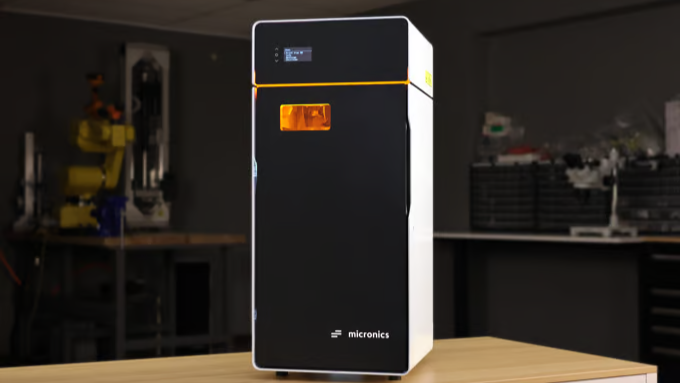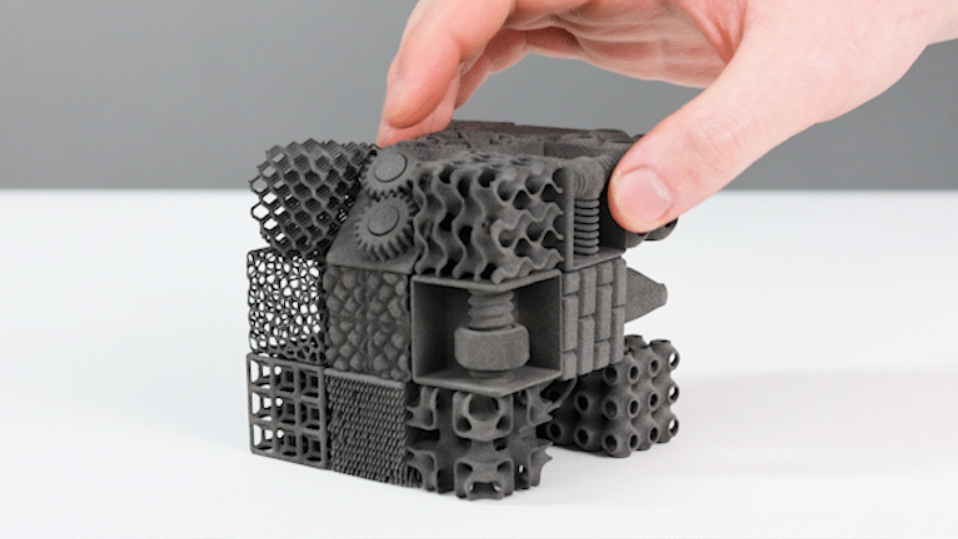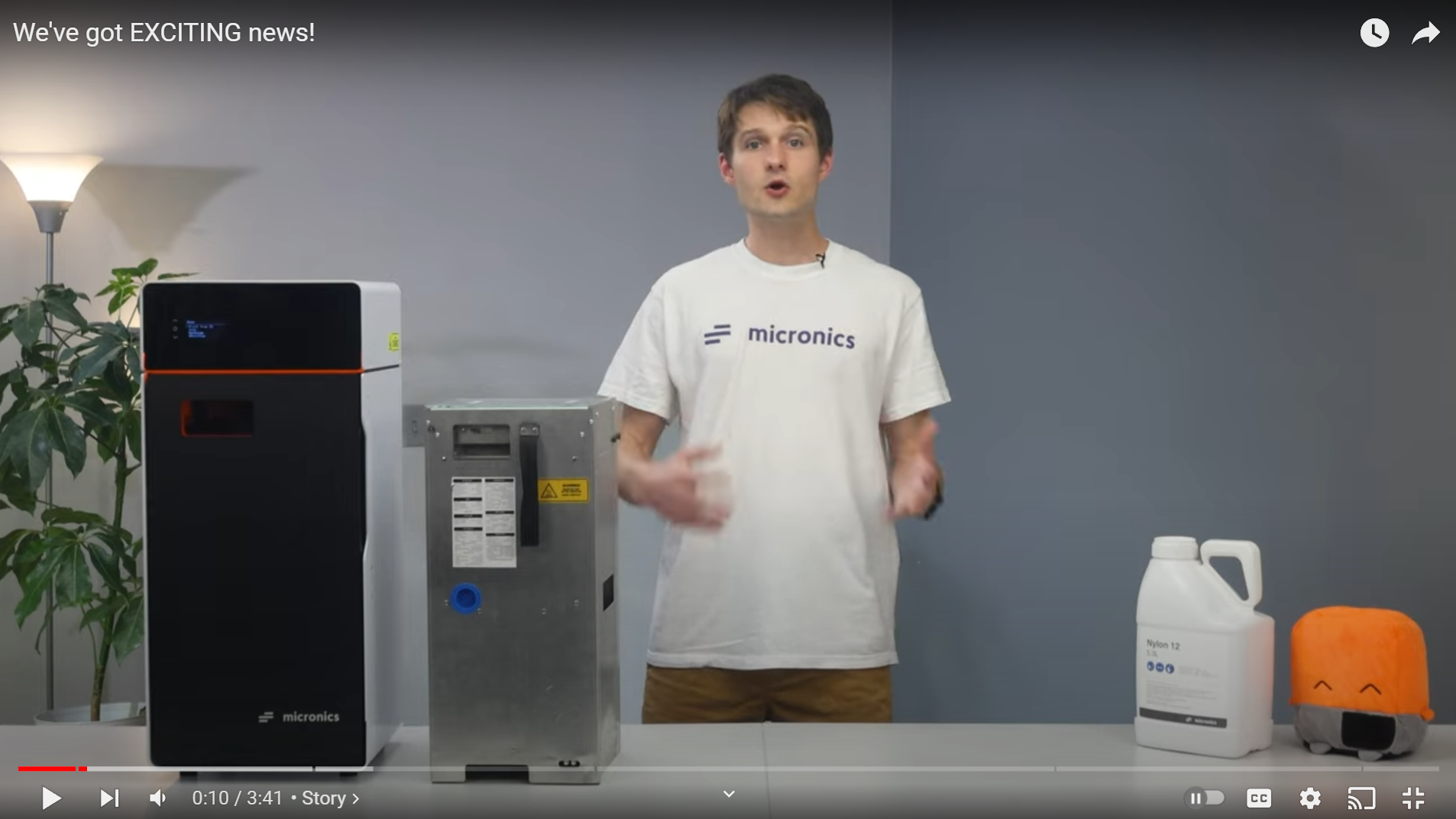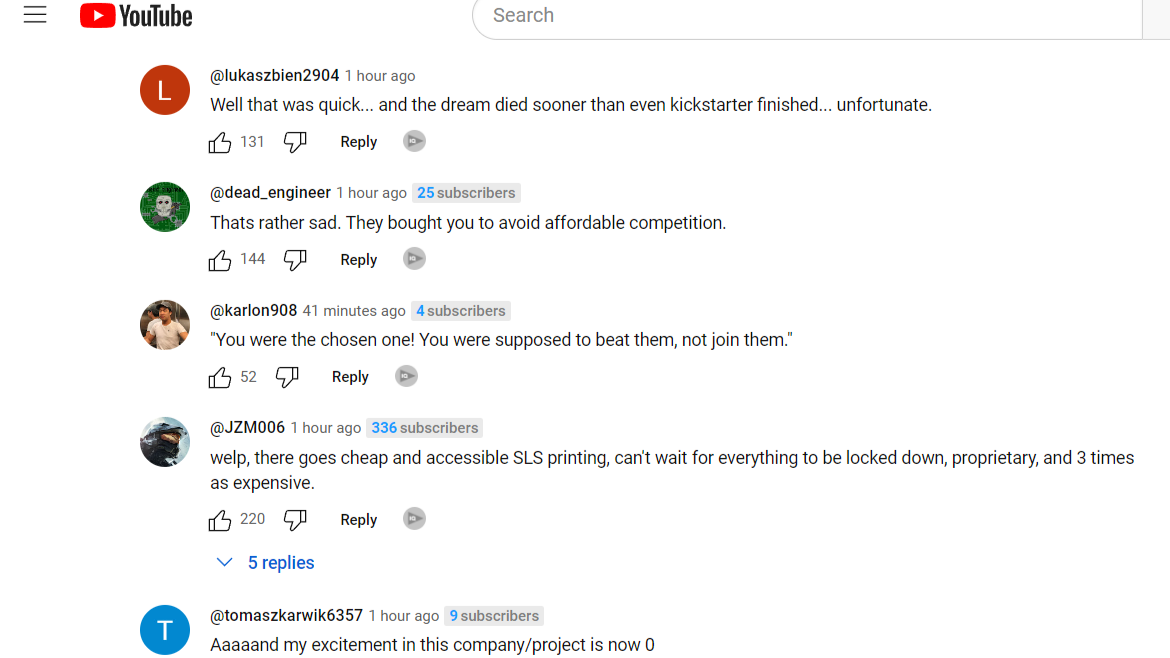
You could say that Micronic’s Kickstarter project is a smashing success, at least for the two young engineers who dreamed of building a next-generation 3D printer out of their college apartment. Their Kickstarter backers have a different opinion.
Henry Chan and Luke Boppart, both 2023 graduates of the University of Wisconsin-Madison, launched a Kickstarter in June to create an affordable Selective Laser Sintering 3D printer, dubbed the Micron. SLS uses a laser to melt thin layers of finely powdered material to form a 3D print. This method doesn’t need support and can use stronger materials like nylon or aluminum. Until now, SLS required industrial-grade machines that cost tens of thousands of dollars.

Chan and Boppart believed they could make a desktop SLS printer for under $5,000 and possibly be ranked among the Best 3D Printers today.
The short-lived project was fully funded by excited potential customers and showcased on Joel Telling’s 3D Printing Nerd YouTube channel. Chan and Boppart then brought their project to Open Sauce, a maker festival and quirky science fair for grownups by YouTuber William Osman.
There they were met by Max Lobovsky, co-founder and CEO of Formlabs, and a deal was struck. The Micron project was dropped, and Chan and Boppart offered to join the Formlabs team. Formlabs makes industrial-grade 3D printers, including the popular Fuse 1 Series of SLS machines, which start at $29,000 each.
Micronics stated that all Kickstarter pledges will be refunded and backers of the project will receive a $1,000 credit towards a current or future Formlabs printer.
Boppart explained the acquisition in a YouTube video. “By joining forces, we get to tap into Formlabs' awesome scaling capabilities. They’ve got a ton of SLS machines out in the wild right now, which gives us valuable insight on how to build reliable machines. Plus, they have a solid customer support network already in place. On the flip side, Formlabs gets a fresh splash of our creativity and nimble development process.”

Boppart also admitted that “two kids straight out of college” might have problems scaling their first generation Kickstarter printer to a reliable consumer machine. Chan said in a video interview with Lobovsky that he was frustrated having to spend time on marketing and packing sample units when he could be designing instead.
Lobovsky did not say if Formlabs would pursue Micronic’s goal of a small, affordable SLS machine. Boppart will join the software side of Formlabs while Chan will lead the development of Formlabs next generation printers. Chan said though he will no longer work on the Micron, he hopes to continue efforts to make SLS printing more affordable.

Comments under Micronic’s announcement video show that Kickstarter backers have a different take on the acquisition. Most voiced disappointment in the project’s end and accused Formlabs of buying off the competition.







